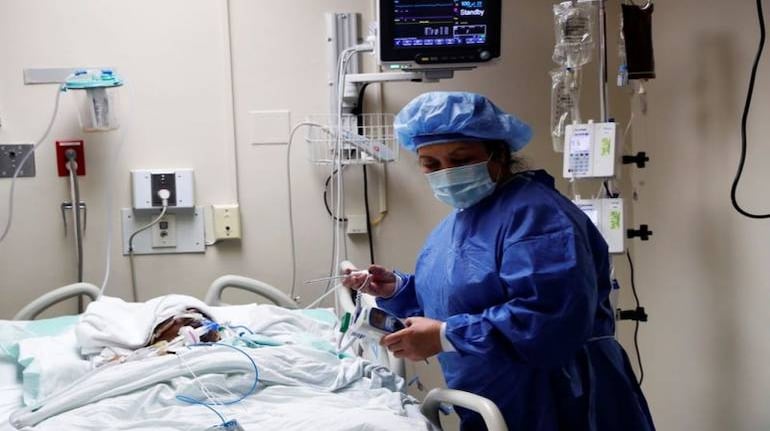



The All India Institute of Medical Sciences (AIIMS) has discovered newer symptoms associated with the deadly novel coronavirus disease, apart from existing ones such as respiratory disorders, fever, cold, etc. These include digestive disorders like diarrhoea and neurological problems, even strokes, which require immediate medical attention.
The doctors at AIIMS found that some COVID-19 patients also had infections in organs other than the respiratory tract, which were leading to gastrointestinal disorders and brain strokes, reported the Economic Times.
For live updates on coronavirus, click here
Earlier, studies conducted in China and France also established the prevalence of neurological disorders in coronavirus patients while some even showed milder symptoms such as headache and dizziness. Among severe symptoms, loss of smell and/or taste, malaise, seizures, and hallucinations were reportedly found in COVID-19 patients. In China’s Hubei province, almost half of the coronavirus patients who were studied had digestive problems such as diarrhoea and anorexia.
A senior doctor at AIIMS said, though most patients would exhibit flu-like symptoms in some cases, instead of cold and fever, the virus resulted in neurological and gastronomical anomalies.
Dr Randeep Guleria, Director - AIIMS, has constituted a task force that will be committed to conducting research on the novel coronavirus disease. He said: “The projects take into account various aspects of the disease, point of care, diagnostics, patients who are asymptomatic and the effect on contacts. There is an array of such projects.”
Medlife launches at-home COVID-19 testing in select cities
These studies are being conducted on healthcare workers to find out the efficacy of hydroxychloroquine and also to ascertain their psychological well-being. These are mostly asymptomatic patients and AIIMS is trying to find out why that happens, the severity of their infection, etc. The task force will also study COVID-19 patients who are on ventilator support, the effect of the pandemic outbreak on non-COVID patient consultations, and equipment related innovations, among others.
The doctors at AIIMS have further informed that the World Health Organization’s solidarity trial, which compares four different methods of treatment and their effectiveness, is yet to be started. These antiviral compounds that are being studied under this are remdesivir, chloroquine and hydroxychloroquine, a combination of lopinavir and ritonavir, and a combination of the HIV drugs with interferon-beta.
Discover the latest Business News, Sensex, and Nifty updates. Obtain Personal Finance insights, tax queries, and expert opinions on Moneycontrol or download the Moneycontrol App to stay updated!